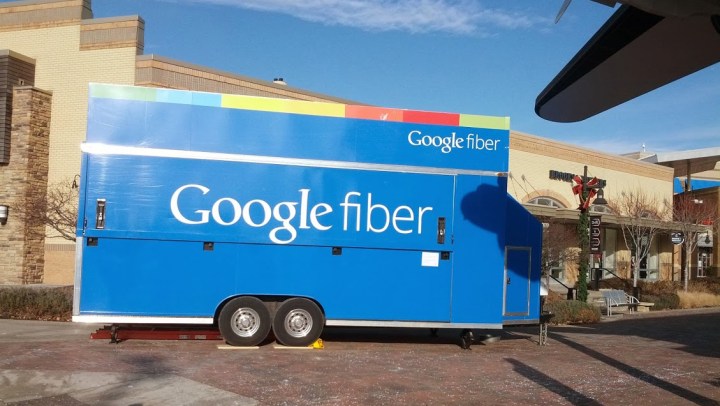
Huntsville, Alabama, and San Antonio, Texas, are the other lucky winners in the let’s-go-gigabit game. The Derby city’s local government support and continued communication with Google Fiber likely factored in it being chosen. Google Fiber is competing with AT&T Fiber, its largest and most vocal competitor in Louisville.
Google Fiber’s original plan to string or bury fiber-optic cable throughout Louisville ran into difficulty over rights to hang cables on existing utility poles. Federal Communications Commission regulations require each company involved check the work, which was slowing progress. Louisville Mayor Greg Fischer lined up behind Google and helped pass a “One Touch Make Ready” ordinance in Louisville that allowed Google Fiber crews to attach their cable and perform any necessary checks and inspections. AT&T sued the city; that case has yet to be settled.
Fiber-optic cable infrastructure rollout costs were also a huge impediment. Last summer, Google Fiber acquired WebPass wireless, a gigabit technology that only needs point-to-point airspace, obviating the need to dig or hang cables. Webpass wireless isn’t cost effective in terms of connecting to single homes, but it’s fine for sending data traffic between larger buildings and distribution hubs. Louisville will be Google Fiber’s first hybrid wireless and fiber-optic cable gigabit internet service city.
AT&T had its own lull in installation activity in Louisville during the fall, but now AT&T crews are busy stringing up the entire city with AT&T fiber cables. The battle is just beginning.
Editors' Recommendations
- Google Fiber is bringing high-speed internet to five new states
- AT&T becomes ‘un-ISP’ of fiber internet with Hypergig plans
- AT&T halts caps on broadband data as coronavirus drives many Americans inside



